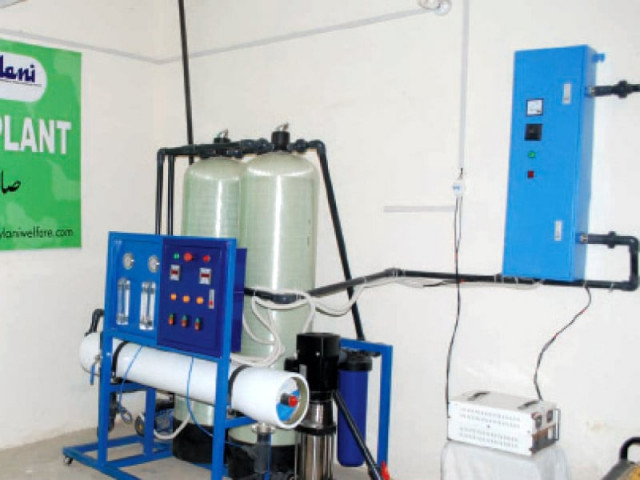‘RO plant installation issues must be addressed’
CM forms committee to submit recommendations for smooth running of plants

Saylani Welfare has set up the first of the 63 reverse-osmosis plants in Siddiq Goth near Shah Faisal Colony. PHOTO: COURTESY SAYLANI INTERNATIONAL WELFARE TRUST
He said this while presiding over a meeting at CM House to review the progress of installation of RO plants and converting them to solar energy. Shah said he has received reports that some plants fail to function while others have capacity issues. "All these issues must be addressed through technical and scientific approaches," he said.
Shah constituted a committee under Special Initiative Secretary Aijaz Ali Khan to hold meetings with other departments engaged in installation of RO plants to come up with recommendations for running the RO plants installed in different districts. "I want efficient operation instead of lame excuses," said Shah, directing the committee to submit a report within three days.
MPAs criticise govt for lack of safe drinking water in Sindh
Khan, during his presentation, said that in phase-I, 500 plants were installed between 2012 and 2015 at a cost of Rs2.44 billion. Out of the 500 plants, 393 are operational and providing water to 1.63 million people.
He said so far 68 RO plants have been converted to solar energy, while work on the others is in progress.
Khan explained that in phase-II 750 RO plants are being installed at a cost of Rs4 billion.
The meeting was told that the third phase, during which 750 RO plants will be installed, started in 2014 at a cost of Rs5.49 billion and is scheduled to be completed in 2018. So far, 525 RO plants have been installed, of which 430 are functional. The solarisation work of 27 RO plants is in progress.
According to him, in the first two phases, 1,050 plants are being converted to solar energy and so far work on 600 plants has been completed.



















COMMENTS
Comments are moderated and generally will be posted if they are on-topic and not abusive.
For more information, please see our Comments FAQ